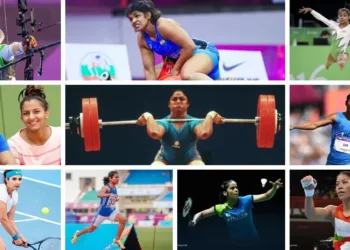Former Juventus president Andrea Agnelli has been handed a suspended prison sentence of one year and eight months (20 months) after accepting a plea bargain agreement related to the club’s financial irregularities scandal. The Rome court’s decision marks the conclusion of a lengthy investigation into alleged fictitious capital gains and fraudulent accounting practices that rocked Italian football’s most successful club between 2018 and 2021.
Table of Contents
The Prisma Investigation: Unraveling Financial Misconduct
The judicial proceedings stem from the “Prisma” investigation launched in 2021, which scrutinized Juventus’ complex financial dealings during Andrea Agnelli’s presidency.

Prosecutors alleged that the club artificially inflated transfer values and manipulated capital gains to present a healthier financial position than reality, while misleading authorities about players foregoing wages during the COVID-19 pandemic.
Key Sentences from the Rome Court
| Executive | Position | Sentence | Charges |
|---|---|---|---|
| Andrea Agnelli | Ex-President | 20 months (suspended) | Fraud, market manipulation |
| Pavel Nedved | Ex-Vice President | 14 months (suspended) | Financial irregularities |
| Fabio Paratici | Ex-Sporting Director | 18 months (suspended) | Fraudulent accounting |
| Cesare Gabasio | Ex-Executive | 11 months (suspended) | Capital gains manipulation |
| Maurizio Arrivabene | Ex-CEO | Acquitted | No case to answer |
The sentences are suspended under Italian law, meaning the executives will not serve prison time unless they commit similar offenses within the probationary period. Juventus as an entity was fined €156,750 and reached a settlement worth just over €1 million with approximately 75 investors who had been misled by the club’s financial statements.
Controversial Transfer Deals Under Scrutiny
The investigation focused on several high-profile player exchanges that prosecutors claimed were designed to generate fictitious capital gains rather than reflect genuine market values. These transactions allowed Juventus to meet financial fair play requirements while masking the true state of their finances.
Suspicious Transfer Operations
| Transfer | Clubs Involved | Alleged Inflated Value | Investigation Focus |
|---|---|---|---|
| Pjanic-Arthur Swap | Juventus-Barcelona | €43 million | Artificial valuations |
| Caldara-Bonucci Exchange | Juventus-AC Milan | €21 million | Fictitious capital gains |
| Cancelo-Danilo Deal | Juventus-Manchester City | €5 million | Inflated transfers |
| Various Loan Deals | Multiple clubs | Undisclosed | Creative accounting |
The Pjanic-Arthur exchange with Barcelona drew particular attention, with both clubs accused of overvaluing players to boost their respective balance sheets. Miralem Pjanic and Arthur Melo were essentially swapped, but the accounting treatment suggested separate transactions worth significantly more than their actual market values.
Andrea Agnelli’s Response to Sentencing
Despite accepting the plea bargain, Andrea Agnelli maintained his innocence throughout the proceedings. In a carefully worded statement, he emphasized that the agreement did not constitute an admission of guilt under Italian law, describing the decision as “undoubtedly difficult” but necessary to avoid prolonged legal uncertainty.
“The decision to request the application of a suspended sentence, without civil consequences or additional sanctions, without acknowledgment of responsibility, and therefore consistent with my position of innocence, was undoubtedly a very difficult one,” Agnelli stated. He explained that after “much reflection,” he believed this was “the most appropriate path” given that the criminal proceeding had been ongoing for nearly four years while remaining at the preliminary hearing stage.
The Fall of Juventus Leadership
The financial scandal led to one of the most dramatic boardroom collapses in football history. In November 2022, Andrea Agnelli resigned as president alongside the entire Juventus board of directors, ending his 12-year tenure that had seen the club dominate Italian football with nine consecutive Serie A titles.

The mass resignation came as prosecutors intensified their investigation into the club’s accounting practices. The Turin Public Prosecutor’s Office had been examining whether Juventus, listed on the Milan stock exchange, had engaged in illegal practices regarding player transfer commissions and hidden salary arrangements during the pandemic.
Sporting Consequences for Juventus
Beyond the criminal proceedings, Juventus faced severe sporting sanctions that highlighted the seriousness of their financial misconduct. The Italian Football Federation initially imposed a 15-point deduction for the 2022-23 season, later reduced to 10 points on appeal, which severely damaged the club’s competitive position.
Timeline of Juventus Sanctions
| Date | Authority | Sanction | Impact |
|---|---|---|---|
| January 2023 | FIGC | 15-point deduction | Serie A relegation battle |
| April 2023 | FIGC Appeal | Reduced to 10 points | Mid-table finish |
| May 2023 | UEFA | European competition ban | Conference League exclusion |
| September 2025 | Rome Court | Criminal sentences | Legal resolution |
The point deduction cost Juventus qualification for European competition, resulting in significant financial losses and reputational damage. The club finished seventh in Serie A during the 2022-23 season, missing out on Champions League revenue for the first time in over a decade.
Implications for Italian Football Governance
The Juventus case has set important precedents for financial governance in Italian football, demonstrating that even the most powerful clubs cannot escape scrutiny when engaging in questionable accounting practices. The investigation exposed systematic attempts to circumvent financial fair play regulations through creative transfer arrangements and misleading financial reporting.
The scandal highlighted weaknesses in football’s financial oversight systems, prompting calls for enhanced transparency and stricter monitoring of complex transfer deals. UEFA and domestic leagues have since implemented more robust verification processes for player valuations and club financial statements.
Path to Rehabilitation
With the criminal proceedings concluded through the plea bargain agreement, attention turns to when Andrea Agnelli and other former executives might return to football. The Italian Football Federation had imposed separate sporting bans: Agnelli received a two-year suspension and an additional 16-month ban, while Nedved and Paratici face their own exclusion periods.
The resolution of the criminal case could facilitate their eventual return to football administration, though they must first serve their sporting sanctions. Agnelli’s powerful family has controlled Juventus for nearly a century, making his potential comeback a matter of significant interest for Italian football.
Juventus’ Recovery and Future Prospects
Under new leadership, Juventus has worked to rebuild its reputation and competitive position. The club has implemented enhanced governance structures and compliance mechanisms to prevent similar scandals while focusing on returning to Champions League qualification and domestic success.

The financial settlement with investors and the conclusion of criminal proceedings represent important steps toward putting the scandal behind them. However, the reputational damage and lost revenue from European competition exclusion will have lasting effects on the club’s financial position and transfer capabilities.
The case serves as a cautionary tale about the risks of aggressive financial engineering in football, where short-term competitive advantages can lead to severe long-term consequences for clubs, executives, and stakeholders alike.
Read More: Kalidou Koulibaly Reveals How Maurizio Sarri Made Him Leave His Newborn Son for the Bench
FAQs
What exactly was Andrea Agnelli sentenced for regarding Juventus?
Andrea Agnelli received a 20-month suspended prison sentence for charges including fraud and market manipulation related to fictitious capital gains from player transfers and misleading authorities about players’ wage arrangements during COVID-19.
Will Andrea Agnelli actually go to prison for his Juventus-related crimes?
No, Agnelli’s sentence is suspended, meaning he will not serve prison time unless he commits similar offenses during the probationary period. Under Italian law, the plea bargain also does not constitute an admission of guilt.
What were the most controversial transfers in the Juventus scandal?
The most scrutinized deals included the Pjanic-Arthur swap with Barcelona (€43 million in alleged artificial inflation), the Caldara-Bonucci exchange with AC Milan (€21 million), and the Cancelo-Danilo deal with Manchester City.
How did this scandal affect Juventus’ performance on the field?
Juventus received a 10-point deduction in Serie A for the 2022-23 season, finished seventh, and missed European competition for the first time in over a decade, resulting in significant financial losses and competitive setbacks.
When might Andrea Agnelli return to football after his Juventus conviction?
While the criminal case is resolved, Agnelli must still serve sporting bans imposed by the Italian Football Federation (totaling nearly 3.5 years). His potential return to football administration depends on completing these sporting sanctions and any appeals processes.








